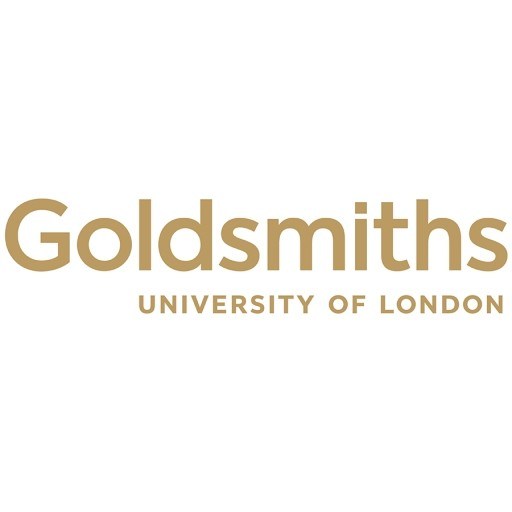Photos of university / #ucl
The Linguistics with specialisation in Syntax MA is a research-oriented programme designed for students looking for a concentrated, advanced course in theoretical syntax, couched broadly within the Principles and Parameters approach to syntax and its offshoot: the Minimalist Program.
Students gain knowledge and understanding of current research in theoretical syntax and are prepared for independent research. On completion of the programme, they will be able to formulate appropriate research questions, find and evaluate relevant literature, develop and test new hypotheses, and produce cogent, structured and professionally presented reports.
Students undertake modules to the value of 180 credits.
The programme consists of five compulsory pathway modules (75 credits), three optional modules (45 credits) and a dissertation/report (60 credits).
Pathway modules
Students choose three from the list below:
- Current Issues in Syntax
- Intermediate Generative Grammar A
- Intermediate Generative Grammar B
- Readings in Syntax
- In conjunction with the Programme Co-ordinator, students select two from a list which includes the following.
- Interfaces
- Morphology
- Advanced Phonological Theory
- Topics in Semantics and Pragmatics
Optional modules
A further three modules are selected, either from the list of non-obligatory core modules above or from the list of optional modules below:
- Advanced Phonological Theory
- Advanced Semantic Theory
- Linguistics of Sign Languages
- Animal Communication and Human Language
- Issues in Pragmatics
- Language Acquisition
- Neurolinguistics
- Phonetic Theory
- Pragmatic Theory
- Semantic Pragmatic Development
- Topics in Semantics and Pragmatics
- Sociolinguistics
- Stuttering
- Any statistical training outside the department
- Any statistical training outside the department
Dissertation/report
All students undertake an independent research project which culminates in a dissertation of 10,000 words.
Teaching and learning
The teaching and assessment of this programme is strongly research-oriented. It is delivered through a combination of lectures, small-group teaching and a virtual learning environment. Some modules also involve workshops or practical classes. Assessment is through take-home and unseen examination, essays, presentations, assignments and the dissertation.
Normally a minimum of an upper second-class Bachelor's degree from a UK university or an overseas qualification of an equivalent standard is required.
The Linguistics with a specialisation in Syntax program at University College London offers a range of financing options to support students throughout their studies. Funding opportunities include government-sponsored schemes, scholarships, bursaries, and personal financing methods. UK and international students are encouraged to explore available scholarships such as the UCL Global Scholarships, which provide financial assistance based on academic merit and need. Additionally, the university participates in national schemes like the UK Research Council funding your studies through grants that may be applicable to postgraduate research components of the program.
Students can also consider external funding sources, including industry sponsorships, private scholarships, and European funding programs where applicable. UCL's Financial Aid Office offers comprehensive guidance on applying for loans, grants, and bursaries, helping students identify the most suitable financial support. Payment plans are available to ease the burden of tuition fees, enabling students to spread payments over the academic year. Furthermore, part-time work opportunities on or near campus can supplement income, and UCL's career services provide resources on internships and part-time roles suitable for linguistics students.
International students should also explore visa-related financial requirements and eligibility for specific funding programs aimed at non-UK nationals. UCL encourages early application for financial aid to ensure priority consideration. Furthermore, departmental scholarships and awards are sometimes available based on academic achievement or research potential, particularly for students pursuing advanced degrees. The university also provides advice on external fundraising options and student loan packages, both local and international. Overall, students enrolling in the Linguistics with a specialisation in Syntax program have multiple avenues to secure financial support, allowing them to focus fully on their academic and research pursuits without undue financial stress.
The Linguistics programme with a specialisation in Syntax at University College London offers students a comprehensive exploration of the structure of language, focusing on the syntactic components that govern sentence formation and language expression. This programme is designed for students interested in understanding the theoretical foundations of syntax, including phrase structure, hierarchical sentence organization, syntactic relationships, and the principles that underlie various language structures worldwide.
UCL's Department of English Language and Literature provides a rich academic environment where students engage with a variety of linguistic theories, grammatical paradigms, and latest research findings. The curriculum combines core linguistics courses with specialised modules in syntax, allowing students to develop a deep understanding of syntactic theory, including generative grammar, dependency grammar, and other frameworks. Students also learn methods of syntactic analysis, gaining skills in constructing and testing syntactic models using data from multiple languages.
The programme encourages a blend of theoretical and applied approaches, and students have opportunities to participate in seminars, workshops, and independent research projects. Methodological training includes syntactic data collection, analysis techniques, and the use of software tools for linguistic research.
Graduates from this programme are well-equipped for careers in linguistic research, language technology, computational linguistics, and academia. The programme also underpins further postgraduate study in linguistics, cognitive science, or related fields.
With close ties to the wider linguistic community at UCL, students benefit from access to leading academics in the field, participation in international conferences, and collaborations with colleagues in related disciplines such as psychology, computer science, and philosophy. The department's location in London provides additional exposure to diverse language data sets and opportunities for interdisciplinary engagement.
Overall, the programme's focus on syntax within the broader context of linguistic inquiry offers a rigorous, in-depth education aimed at understanding the fundamental structures of language and their implications across different languages and linguistic phenomena.






